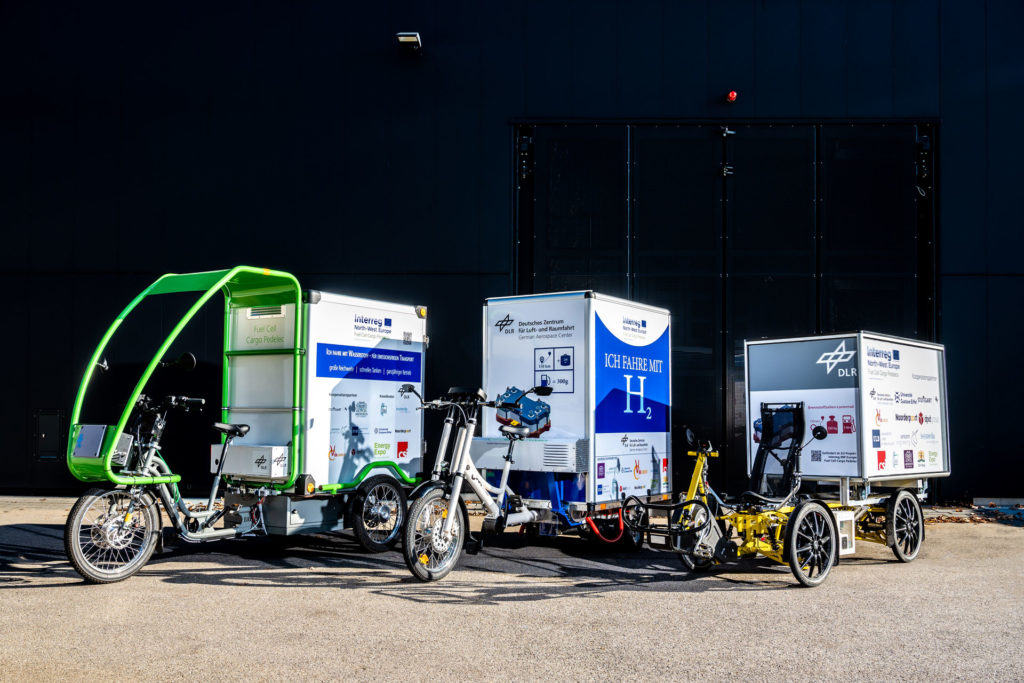Emission-free and congestion-reducing delivery in city centres
The EU project Interreg North-West Europe (NWE) is testing Fuel Cell Cargo Pedelecs (FCCP). The focus is on using them to deliver packages in inner cities. Compared to other propulsion technologies such as batteries, fuel cells offer the advantage of a longer range, extended daily use and short refuelling times.
The special features of the fuel-cell system developed at the DLR Institute of Engineering Thermodynamics include a continuous output of 400 watts with a maximum output of 1000 watts and a hydrogen tank with a capacity of 300 grams that can be filled in approximately three minutes. The range per tank filling is about 150 kilometres. The system has metallic bipolar plates, is liquid-cooled and has a cold-start capability down to a temperature of minus 20 degrees Celsius.
This innovative and whole-system logistics concept could benefit, for example, small businesses as well as parcel and delivery services. It could also be used as a compact refuse collection vehicle, for delivering heated or cooled meals and as a means of transport for companies with extensive premises.
In the future, this concept could make freight transport in pedestrian zones and other inner-city areas much more sustainable. This logistics concept is attractive for European cities as well as for metropolitan areas worldwide. At the same time, the fuel-cell system offers the possibility of a power supply that is independent of the grid.
In addition to the DLR Institute of EngineeringThermodynamics, the project also involves the DLR Institute of Vehicle Concepts and the DLR Institute of Transport Research, as well as partners from research, logistics and European municipalities.
Link:
German Aerospace Center (DLR)
Institute of Engineering Thermodynamics
Sabine Winterfeld | Email Sabine.winterfeld@dlr.de

